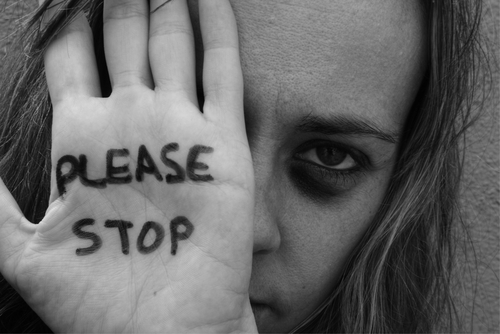
ESPN’s Keith Olbermann took to airwaves recently, presumably taking a stand for the victims of domestic violence calling not only for a boycott of the NFL draft, but also the Mayweather – Pacquieo fight tonight.
How convenient. Olberman is getting a lot of play out of focusing the issue of domestic abuse on Mayweather instead of the system that allows men or women who batter their significant other to get off with a simple wrist slap. Olbermann’s rant included this:
The juries have already ruled on Floyd Mayweather, five times. In a report this afternoon on Outside the Lines John Barr told of Floyd Mayweather’s record of criminal violence against women, which cascades down upon you like an avalanche…. You will support this excuse for a man? You will help him continue to behave as if his conduct is acceptable in the 21st century, or the 20th, or the 19th? I won’t. I regret this deeply. I met Manny Pacquiao last year, and a quieter, more respectful, more dignified boxer I’ve never encountered. May he make millions more, but I will not give Floyd Mayweather a dime.”
Funny. It was Keith Olbermann that raised the question about Pacquiao fighting Mayweather just a year ago. I don’t hear anything in this interview with Olbermann and Pacquiao but a little giggle from him, “Operators are standing by.”
Pretty sure Mayweather had been convicted of domestic violence then. What a joke…on all the women jumping to Olbermann’s side and also calling for the boycott. Let’s talk about the real issue: lack of consistently laws and sentencing for domestic violence offenders. Are you really going to boycott the fight, but not talk about the judge who passed the sentences down on Mayweather for his convictions or the prosecutors that plead him out? What is the real issue here? I thought it was about protecting the victims of domestic violence. So why aren’t we challenging the prosecutors?
According to the National Institute of Justice:
As with most offenses, most domestic violence prosecutions are disposed of as a result of plea and sentencing negotiations.
For most domestic violence cases that do not go to trial, an analysis of 85 domestic violence prosecution studies found an overall conviction rate of 35 percent.
Not all domestic violence cases are equally likely to be prosecuted. The research indicates that prosecutions of intimate-partner stalking and intimate-partner sexual assault are rare. The research also reflects very low arrest rates for these offenses.
Mayweather’s multiple arrests are far from rare. The National Institute of Justice found that a high majority of defendants were rearrested before their first trial even began:
Multiple prosecution and arrest studies broadly concur that abusers who come to the attention of the criminal justice system who reabuse are likely to do so sooner rather than later. In the Quincy court study, about 40 percent of the arrested abusers reabused their victims within one year. Forty-four percent did so before the study arrest was prosecuted in court. The average case took about six months from arraignment to prosecution. Similarly, in a Cook County study, 30 percent of the defendants were rearrested within six months of their study arrest, and half of the arrests were for a new domestic violence offense. The average rearrest time was only 29 days after initial arrest. In addition, in almost half of the cases (45.9 percent), the defendants tried to talk the female victims out of testifying. Moreover, 29.1 percent of these defendants stalked their victims before the trial, and 8.7 percent specifically threatened them. An Indianapolis prosecution study found that almost a quarter of the defendants reabused their victims before the pending trial.
Pretty sure it’s time to stop following the next famous abuser and look at a more consistent sentencing. To date, there appears to be little success in programs that ensure that a victim will not be abused again by their partner.
Make it a daily conversation. Domestic violence is difficult. It involves family members. We need to figure out how to stop it, not how to bring attention to it. We get it. Now do something about it.



